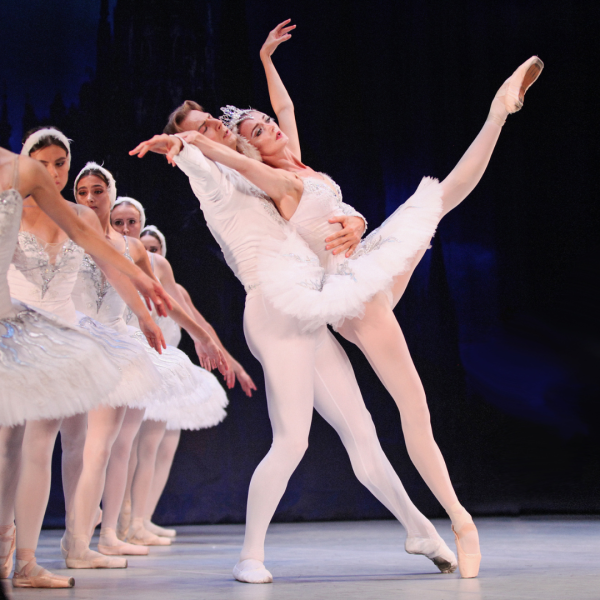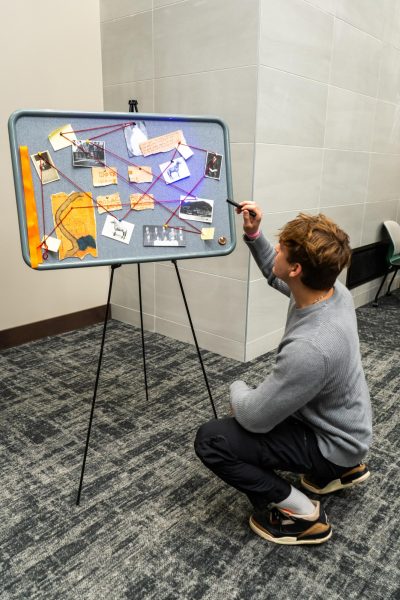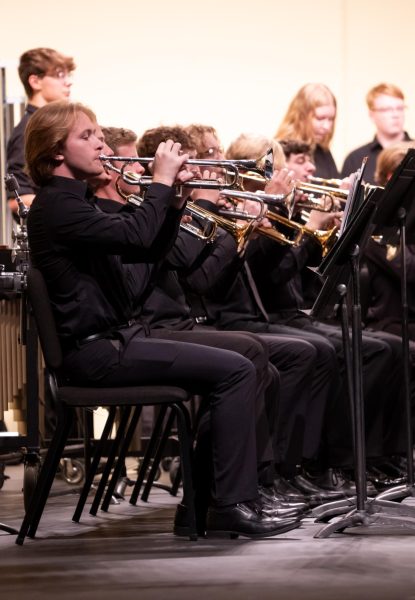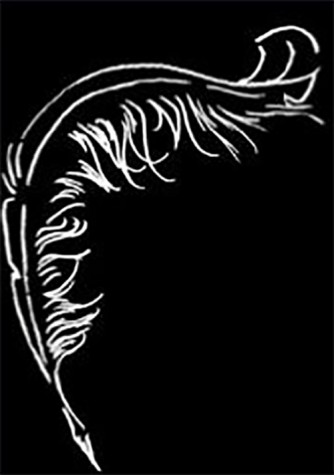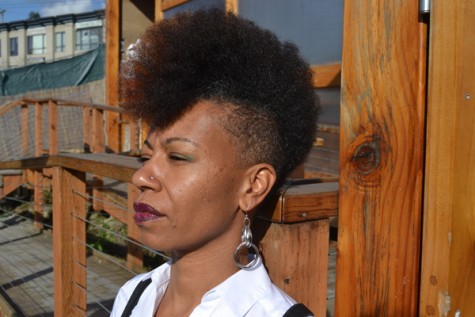Poetry Review: ‘Tributaries’
3 out of 5 stars
With all the complex geometric patterns, the lovely bird and the many different colors on the front cover of “Tributaries” by Laura Da’, readers can’t help but be drawn in — the front cover alone is beautiful. Even the rich, blue color on the back of her poetry book is attractive and catches the reader’s attention. According to the short biography in the back of her book, Laura Da’ is a member of the Eastern Shawnee Tribe of Oklahoma and has been named one of Sherman Alexie’s top ten Native American poets.
“Tributaries” was published by The University of Arizona Press in 2015, so this book is yet another work that is contemporary. In “Tributaries,” Da’ writes about the Shawnee Native American experience drawing from past events like the Indian Removal in the 1830’s and events from the present, such as powwows set up like small town fairs attracting tourists. Her poems are written in no distinct form. In fact they read like very short stories at times. There are 30 poems in this 70 page book and most of her poems stick to the theme of the Shawnee experience and history.
Some poems in this book are very powerful, such as “Winter Dance of the Oldest Child.” One of the three sections of this poem is particularly gut wrenching. The main character, a young girl, has to give her own breast milk to her newborn brother. Where is the mother of the girl and her brother? If the young girl is producing milk, then she too has a child. Where is this child? This scene makes the reader, especially outsiders like myself, not deeply connected to Shawnee history at all — looking through a window into the difficulties that these people have had to endure. Imagine having to feed your baby brother your own breast milk. This is one example of the hardships the Shawnee people have had to endure.
Some of the poems Da’ has written show repeating images like corn dust, the corners of one’s mouth, intricate bead work and the care of siblings and children. She looks at Christianity as well as the names of places in the U.S. and the frustrations of being a modern day Native American, “My grandfather proclaimed me an angry little Indian.” All of this makes “Tributaries” all the more interesting to read.
There are things I did not like about this book toward the end of the collection. I feel there is such a strong theme throughout the entire book of the Shawnee experience, but a couple of poems seemed to not fit in with the rest of the collection.
Also, though her poems can feel like beautiful short stories, a few tended to be longer than they needed to be. Making the pieces shorter would make them even more impactful.
Besides those minor issues I’ve had with this book, I feel “Tributaries” is a poetry book we all need to read. When one thinks of poetry, a lot of people tend to think of old, dead white men such as Shakespeare writing from a very Eurocentric perspective. There is a lot of poetry out there from many different perspectives and cultures all around the world that I feel we all should read — and this book, “Tributaries,” should be one of them.
Kaitlyn Dahle is a staff writer for The Dakota Student. She can be reached at [email protected]


